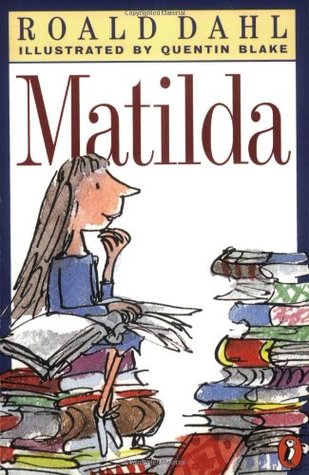Fictional teachers have a knack for inventing some of the harshest punishments for their students' misbehaviour, to the extent that you can't help wondering if a sadistic imagination was a job requirement. Applying the metaphorical stick seemed to give this group a jolly good thrill of satisfaction. Or maybe it was partly a desperate ploy to maintain the upper hand, calling for increasingly more negative creativity. I thought I'd avoid incidents involving the cane, because it's just so crass and un-inventive. Even withhout a strike across the palm, literary school punishments can get pretty insane. Here's a countdown of some of the most memorable I can think of, starting with some lighter ones and culminating in the ultimate deed of depravity at the end of the list.

10) Amy March is punished for bringing pickled limes to school
Mr Davis has warned his class of schoolgirls that he won't tolerate the fad for this sour sweet, but rather than simply confiscating them until recess time, he orders Amy to pitch hers, one by one, out of the window. Apart from the waste of a good treat, the shame of being put on the spot is too much for Amy, and Marmee is incensed enough to withdraw her from school. The March family weren't fans of using humiliation to make a point. They sound naive about the public school system, and I was surprised Amy lasted as long as she did. In my opinion, Mr Davis' punishment was on the tamest end of the spectrum and deserves tenth spot. (Here is my review of Little Women.)
9) Anne is disgraced in front of the class.
It's her punishment for cracking her slate over Gilbert's head, so in all fairness, Mr Phillips has to do something. He chooses to make her stand by the blackboard and writes a line about her bad temper. To add insult to injury, he doesn't spell her name right. He leaves off that crucial letter 'e' when he writes, 'Ann Shirley has a very bad temper. Ann Shirley must learn to control her temper.' That upsets her just as much as all the rest of it. (See here for more about Anne of Green Gables.)
8) Bart Simpson gets never-ending lines.
The start of every episode has this boy copying something completely fresh, to the point where we viewers automatically check what he's been up to this time. The intended negative reinforcement never seems to stop his mischief. Or perhaps it does, since every occasion is new and different.

7) Miss Wilder orders Carrie to keep the desk thumping.
It's an unfortunate incident, since the poor girl had been so intent on her studies, she didn't realise her wonky desk was causing a disturbance. But her tetchy teacher forces her to crank up the noise louder, to the point where Carrie almost faints from the effort. Her indignant big sister Laura steps in to save the day, and eventually features her future sister-in-law Eliza-Jane in stories such as this for all the world to see, which is perhaps the biggest come-back. (Here's my review of Little Town on the Prairie.)
6) Dame Slap gives her students impossible-to-answer questions.
She runs a sort of reformatory school for naughty fairies, pixies and elves. It's pretty clear that she loves her job, since she makes sure there are always unavoidable reasons for dealing out punishment. But Moonface and the gang call her bluff by coming up with answers she can't refute, since they're just as ridiculous as her bogus questions. Old Enid Blyton kids' classics are well worth a read.
OK, we've passed the halfway point. Now they start getting really intense.
 5) Reverend Nathan Price makes his daughters write 'The Verse'.
5) Reverend Nathan Price makes his daughters write 'The Verse'. The Prices are a missionary family living in the Congo, and this stern, autocratic dad takes on their education in his extreme way. He often makes the girls write 100 Bible verses in one sitting, ending with the crucial one relating to their misdemeanor, (such as 'honour your father and mother'). Although his skill at zipping back one hundred verses to set the start is impressive, the surprise element never makes the girls any fonder of the dreaded discipline. (Here is my review of The Poisonwood Bible)
4) Fake Mad-Eye Moody turns Draco into a ferret.
Well, this one is technically a physical punishment, but it's compounded with humiliation when he bounces him up and down with his wand. It's such an unusual use of a teacher's power, on my list it goes. I'm sure poor Draco never forgets what happened. Professor McGonagall explains the ethical considerations of a such a deed, when she scolds her fellow teacher, 'We never use transfiguration as a punishment!'
3) Professor Bhaer turns corporal punishment back on Nat.
It's written in a way that we readers are meant to condone this incident, but it reeks a bit of emotional manipulation. Instead of following the expected protocol, the good professor hands the cane to the student and reverses it. He says in effect, 'If you persist in telling white lies, I must be a very poor teacher, so I want you to whip me until I shout out for mercy.' After a few half-hearted taps on the hand, the total unfairness of the turn-about makes poor Nat crack, so he promises to behave himself from that moment. As far as the author Alcott is concerned, the experiment worked. But I think it shows that sometimes students have more sense than crazy teachers. And it didn't go unnoticed by me that Prof Bhaer chose a thoughtful little chap with a strong conscience rather than a big rebel who might've taken full advantage of the opportunity. I know he meant well, but it's just a bit weird and twisted.
Now for the final two, which I was balancing back and forth for a while.
 2) Miss Trunchbull force feeds Bruce Bogtrotter a huge chocolate cake.
2) Miss Trunchbull force feeds Bruce Bogtrotter a huge chocolate cake.This head-mistress from Matilda is one of the worst teachers in literature. What sort of depravity must it take to force a young boy to keep swallowing mouthfuls of a party-sized mud cake until he's sick to bursting point? It's got to be one of the worst punishments ever, but Matilda, Bruce and their fellow students manage to transform the cruel deed to a glorious victory, turning the tables back on Trunchbull. It made a big impact on my homeschooled kids but didn't stop us trying a recipe we came across for 'Bruce Bogtrotter's cake.' Delicious.
We are down to the nastiest punishment of all, and I think I've made the right choice.
1) Professor Umbridge makes Harry write lines with a quill that scorches the words into his hand.
 She pretends that her unjust punishment isn't going to involve excruciating bodily pain. He expects that he'll just have to knock off a few lines. 'You're going to use my special quill,' she gloats in her syrupy sweet voice. We must read, or re-read the incident to get the full impact of her simpering smile while he sits there, gritting his teeth, resolved to say nothing at all. For of course Harry is fortified by knowing full well that he's in the right. He wasn't telling lies at all by warning the world that Voldemort had returned, and we all trust that events will show up the true colours of both these characters.
She pretends that her unjust punishment isn't going to involve excruciating bodily pain. He expects that he'll just have to knock off a few lines. 'You're going to use my special quill,' she gloats in her syrupy sweet voice. We must read, or re-read the incident to get the full impact of her simpering smile while he sits there, gritting his teeth, resolved to say nothing at all. For of course Harry is fortified by knowing full well that he's in the right. He wasn't telling lies at all by warning the world that Voldemort had returned, and we all trust that events will show up the true colours of both these characters.Casting my eye down this list brings even more to light. Rarely did literary school punishments produce true remorse or anything but bitterness, resentment, scarred emotions and bruised spirits. In most of these incidents, the student was written as the focal character deserving of our sympathy. I do believe there's a place for punishment, but perhaps these authority figures used a bit too much relish. It strengthens my belief that as far as punishments go, the most effective ones involve sowing and reaping. An undesirable result simply follows inevitably from a student's action. It also helps convince me that the carrot is a preferable motivational tool to the stick whenever possible.
Can you think of any incidents I overlooked? Please mention any extras. Also would you change my rankings?
You might also enjoy this related list of best and worst teachers.
And here's an even more specific one, full of notable literary headmistresses.


Oh my gosh, what a list!!! I was three or four down when I started thinking "but what about Miss Trunchbull?"... and then found it, right there near the top, so clearly we're on the same page ;) I think the reason Trunchbull, instead of Umbridge, came to mind so clearly (and quickly!) for me on this topic is that I was much closer in age to Matilda when I read that book (compared to Harry Potter), so the power differential was a lot more salient for me.
ReplyDeleteAnd I love your insight at the end here, you're absolutely spot on: horrifying and corporal punishments do very little to encourage any behavioural change or inspire empathy. Instead, they're (almost?) universally damaging and scarring, and likely to precede future issues with authority. You've given me so much to think about and chew on, thank you! Keep up the great work!!
Lol, yeah, I found it hard to juggle between worst and second worst, and to be honest, they're pretty well up there together 😉 What you say about being closer in age at the time of the first read makes sense, plus Matilda probably appeals to the book nerd in so many of us. But don't you think Trunchbull and Umbridge could've been good friends if they'd met? Once, my eldest son's two least favourite teachers turned out to be best buds 😂 It figures. And yes, I've yet to come across a story where a mean punishment was beneficial.
ReplyDelete